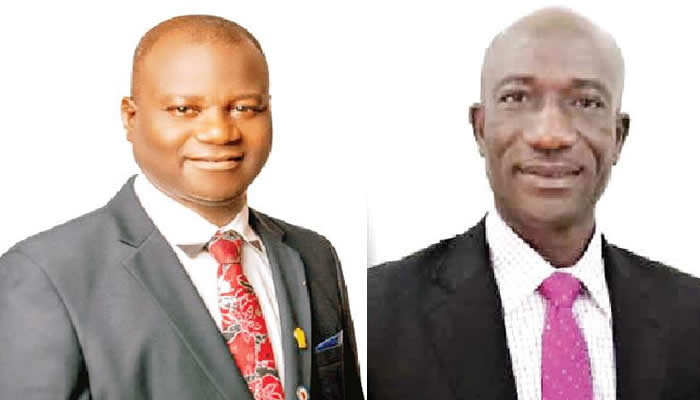Doctors don’t reject patients but refer critical cases, experts say

Medical experts have said no hospital or doctor deliberately rejects patients but rather refers them to specialist hospitals if their cases exceed the capacity of the facility.
The clarification follows a recent outcry by a man, Akinbosola Folajimi, who alleged that a hospital refused to treat his pregnant wife, Kemi, despite being in visible distress.
In separate interviews with PUNCH Healthwise, the physicians emphasised that referring a patient should not be misconstrued as rejection or refusal to provide treatment.
The health experts also advised Nigerians to seek medical attention early to ensure timely and adequate care, noting that early presentation increases the chances of survival, especially in cases where referrals are necessary, thereby helping to prevent avoidable health emergencies.
They urged Nigerians to enrol in health insurance plans, stating that doing so would help prevent cases of referral due to an inability to pay medical bills.
Recently, cases of hospitals ‘rejecting’ patients in critical conditions went viral on several social media platforms, with many netizens blaming hospitals and doctors for allegedly refusing immediate care to patients.
However, PUNCH Healthwise reports that not every hospital has the capacity to provide the necessary care and treatment to critically ill individuals.
Providing expert insight into the matter, the National President of the Association of Nigerian Private Medical Practitioners, Dr Kay Adesola, noted that patients brought to a hospital in critical condition need urgent medical attention.
He added that not every hospital is equipped to handle critical situations, and such facilities have no choice but to refer patients to those better equipped to manage the case.
Adesola further corrected the misconception that hospitals refuse treatment or reject patients, emphasising that doctors or hospital management can only refer patients to better-equipped facilities.
He explained, “In critical situations, there is no time to waste. You must take action to save the situation. It’s not every hospital that is equipped to handle very critical cases, and the reality is that most private hospitals are surviving through individual efforts. The government rarely supports private hospitals; they make noise about it, but we don’t receive any assistance.
“So, in a critical situation, if you’re a doctor running the hospital and a case is brought in that’s beyond what you can handle, the best and safest thing is to properly guide them to a facility that can handle the case. You know better than they do.”
Adesola further noted that sometimes, first aid could be provided to patients in dire conditions before referral, but cases beyond what the doctor or hospital can handle are immediately referred.
He added, “When dealing with critical situations, if a patient is bleeding, for instance, and you know the case is beyond your capacity, you can stop the bleeding with basic first aid, such as stitches or a tourniquet, and then refer them to the best possible facility for proper treatment. These are the basic steps we take.
“It would be irresponsible, and you would be blamed, even by your colleagues, if you know a case is beyond what you can handle and you decide to admit the patient. Is it for money that you would take a patient you can’t treat? It’s always better to guide them to the right place.”
Adesola clarified that patients with trauma, such as those involved in road accidents, may have internal bleeding that requires immediate surgery, which can only be performed in hospitals with in-house anaesthetists, blood banks, and the necessary medical teams and equipment.
He said, “If people are patient with healthcare providers, they will understand when and what to do. Sometimes, people refer based on bad experiences. In a situation where you take in someone, provide all the services, and in the end, they refuse to pay and no one is willing to cover the costs, we sometimes get beaten for asking for money.”
Adesola also called for greater awareness of the appropriate health facilities to go to during health emergencies and critical conditions. He urged Nigerians to embrace the culture of early hospital presentation and consultation whenever a health condition is noticed.
The ANPMP National President added, “Health insurance is meant to ensure universal health coverage, which means that every citizen should have access to healthcare, regardless of their financial or economic status. As a human being, you deserve to live. Health insurance is something all of us must promote among the citizens.
“Don’t think, ‘God forbid, if I start contributing money for health insurance, I’ll get sick.’ That mentality needs to change. The day you need it, you’ll simply walk into a hospital.”
President of the Healthcare Providers Association of Nigeria, Dr Austine Aipoh, also stressed that the word ‘rejection’ has no place in medical parlance.
“No doctor rejects a patient,” he stated. “If a doctor lacks the skills or equipment to manage a patient, they provide first aid and refer them to a better-equipped facility. Nigerians may wrongly perceive this as rejection, but it’s not.”
Aipoh added, “It’s a bigger offence for a doctor to keep a patient they cannot treat, one they cannot help, in their facility. That’s punishable by law. Doctors must know their limitations and when to refer patients.
“Hospitals are categorised into three levels: primary care, secondary care, and tertiary care. Primary care is provided by health centres and many private hospitals. Secondary care is provided by general hospitals, while tertiary care is provided by teaching hospitals and Federal Medical Centres, where complicated cases are treated.”
The medical practitioner explained that if a patient with a condition like kidney failure goes to a primary centre, that facility cannot treat the condition. The patient must be referred to a tertiary centre where they can receive the proper treatment from a nephrologist.
“It’s essential for the population to understand that certain conditions can only be treated at certain types of facilities due to the training of doctors, their expertise, and the equipment available,” he added.
Regarding referrals based on an inability to pay medical bills or deposits, Aipoh stated that private hospitals, unlike government-run hospitals, depend on fees to operate.
“If a patient cannot afford to pay at a private hospital, the doctor can advise them to go to a government facility where the fees are lower. However, the doctor will still provide first aid,” Aipoh said.
He urged Nigerians to enrol in health insurance plans, adding that the government should ensure more citizens are covered under Universal Health Coverage.
“If all Nigerians had health insurance, these issues would be eliminated. With health insurance, there would be no need for deposits, and you would be able to access care at any hospital. The hospital would only need to call the HMO for an authorisation code. Health insurance is the solution,” Aipoh said.





